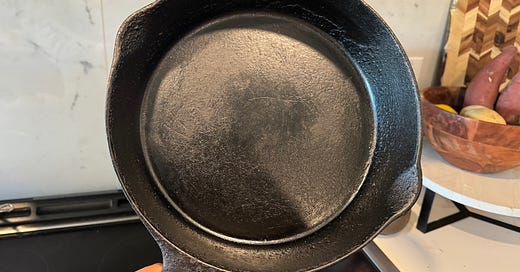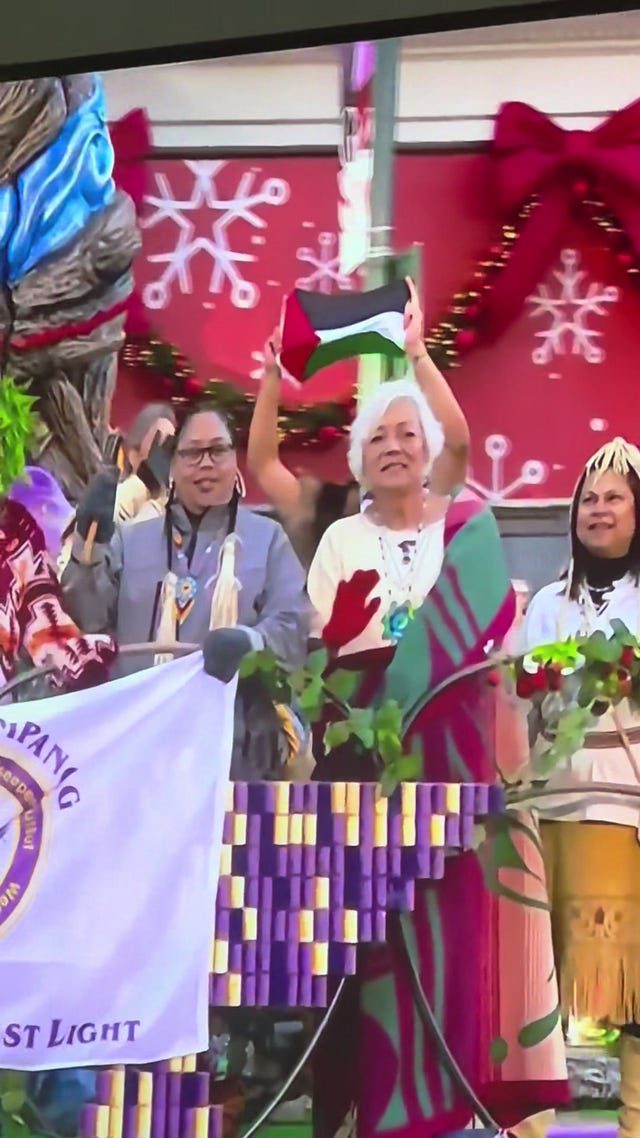A very despicable man once said, “If you want to make God laugh, tell him your plans.”
In this case, you guys are my God because I told you all last weekend that I had a grand spontaneous escape planned, a solo retreat to Santa Fe or Sedona, and would be spending my week off from corporate by a fire wrapped in a blanket sipping spiked hot chocolate.
But I’m not.
I’m here, alone, in Hollywood. For no other reason than that no other place in the world seems as perfect to me as my couch did. I’m here in a beige furry blanket and beige fuzzy socks, feeling like an absolute Labradoodle.
I didn’t really grow up in a Thanksgiving household, and I didn’t fully understand why until a few years ago. It’s a generally sad day for the women on my mom’s side of the family. Thanksgiving Day in 1973 fell on November 22, which was also my grandfather’s birthday. He, my grandmother, family and friends were celebrating at home with cocktails when they got a call that her recently-hospitalized mother, my great grandmother Vivian, had taken a very sudden turn for the worse. My grandma left the party, went to watch her mother die, and never really celebrated Thanksgiving ever again.
That was exactly 50 years ago.
My grandfather died less 10 years later, young in his 50’s, and November 22 just became a secretly sad day that my mother and grandmother never talked about.
My great aunt inherited the homemaker’s gene and still basically lives in her kitchen, where there is always a pot stewing and a pie cooling. I don’t think my grandmother ever had the gene, before or after her mother’s death, but she did the next best possible thing, which was to leave her widowdom and common-law marry a sharecropper-turned-mechanic from Hickory, Virginia.
He was around for nearly all of my life, and all of my memories visiting my grandmother’s house are centered around the smells that came out of his kitchen. The gas stove. The grease in the air. The smell of things I still can’t stomach to eat — a pig foot stewing in a pot of collard greens, a bowl of chitlins soaking on the counter, a jug of “corn wine” fermenting in the laundry room, an absolutely paralyzing jar of moonshine hidden in a cabinet. He was always old to me. Spoke with an accent so thick it was like another language. Not totally affectionate, but always incredibly patient. He would let little me comb and braid his hair while he smoked Salems and watched Nascar. He could grow a flourishing vegetable garden with waist high corn in a shaded side yard made of coal-dense soil. His favorite magic trick was showing us how he could count cards. Take a guess why he loved Atlantic City.
He was made of stacks of gold jewelry, polarized Oakleys, nylon tracksuits, a finely carved goatee painted black, and halo of hair always dyed red. Born just two generations from plantation slavery to a native mother and Black father. He himself was essentially born into slavery, just a different kind rebranded as sharecropping. Young me pried childhood stories out of him, some with more reluctant answers than others. Him walking to school as a bus full of white children threw rocks and bricks out of its windows as they passed. And that time he died after a tractor accident on the farm he was ‘working’ on burned him alive. He recalled waking up in “the cold room” (the morgue) and scaring the shit out of the attendant.
If I ever write a book, it’ll be about him.
When he passed in 2009, there were two things of his I kept. A pair of thick wool socks, and his cast iron skillet — a Sears’ catalog Puritian skillet from the 1930s. I like to believe he had it all his life, from his teenage kitchen until he died an old man at 85.
It took me 10 years after his death to finally cook with it, and another 3 to finally clean it. Really clean it. To chisel off the shell of grease that had climbed up it’s walls after nearly 75 years of use. I couldn’t bear to get rid of it all though. It adds flavor.
Anyway, the star of my Thanksgiving Dinner for one will be a gigantic blunt baked Mac n Cheese simmering in its loving cast iron embrace.
Thank you to the peoples whose land I love: The Lenape (New York & Pennsylvania), the Tongva (Los Angeles), and the Arawak (Caribbean). Thank you to the Mashpee Wampanoag for this:
Land Back.








“He was made of stacks of gold jewelry, polarized Oakleys, nylon tracksuits, a finely carved goatee painted black, and halo of hair always dyed red.” This sentence was pure poetry! It’s clear the impact he hand on you, and just how distinctive his stature was in this world. Hope he’s resting well 💜🙏🏾
Wow I loved reading this, one of my favorites of your essays so far. Such gorgeous writing and recollection. Never get rid of all that grease, it’s nourishing, enjoy that mac and cheese!❤️